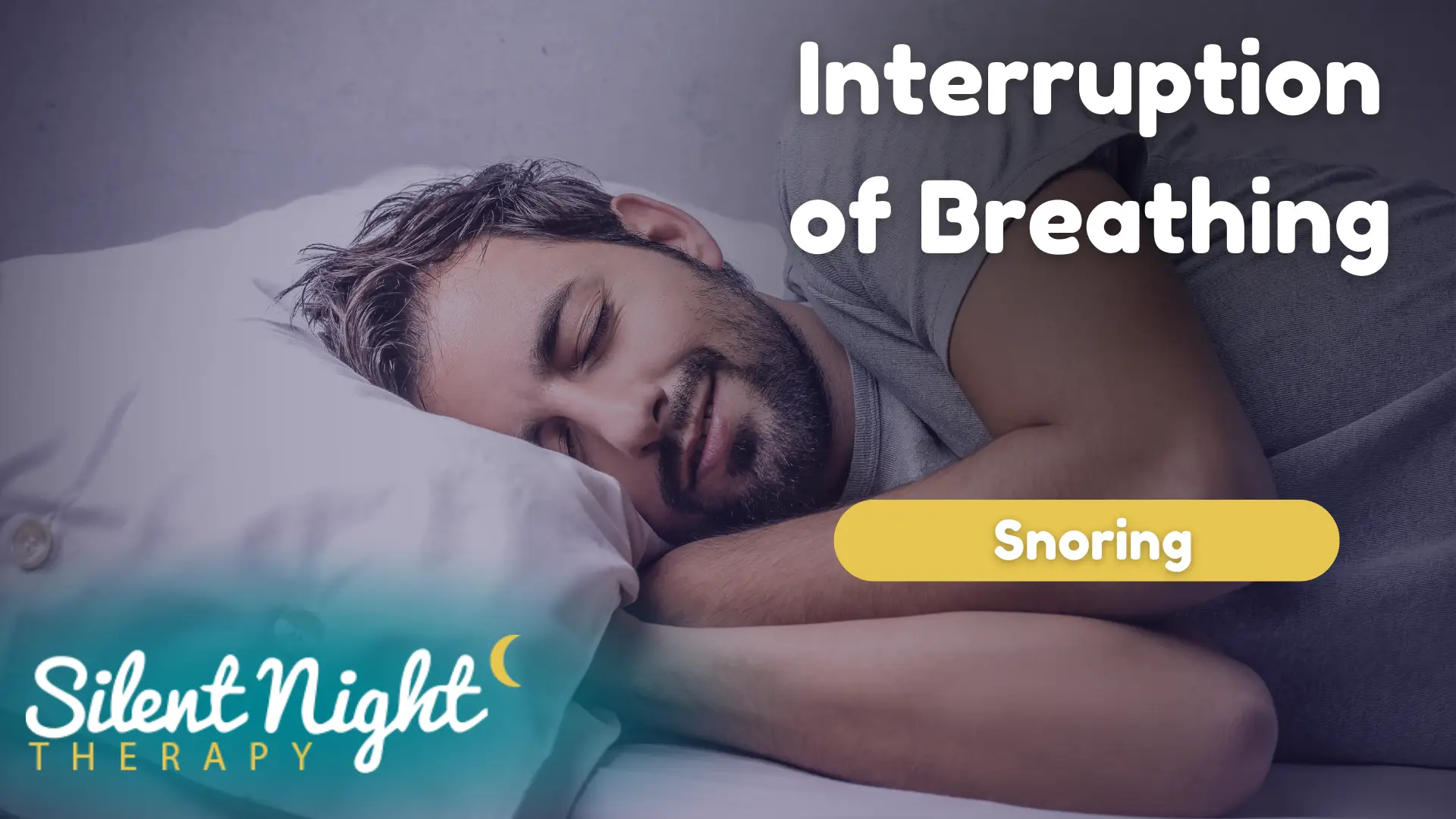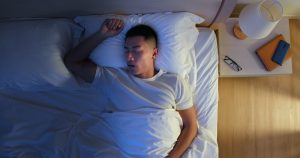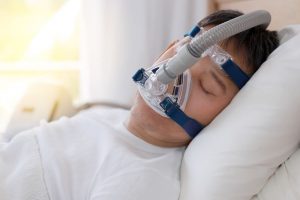 Interruption of breathing is simply a way of saying your respirations aren’t occurring regularly. A normal respiration rate is about 12-20 breaths per minute, depending on your age and overall health, although infants and small children breathe much faster.
Interruption of breathing is simply a way of saying your respirations aren’t occurring regularly. A normal respiration rate is about 12-20 breaths per minute, depending on your age and overall health, although infants and small children breathe much faster.
Interrupted breathing occurs when your respirations are not regular or are too slow, a condition called bradypnea (slow breathing). Even though it is called “bradypnea,” it is actually an interruption in your breathing because the effects are the same. Interrupted or slow breathing can have a serious impact on your body.
If you or a family member have been having trouble sleeping because of breathing difficulties, give the New York snoring specialists at Silent Night Therapy a call at (631) 983-2463. We can help you find out what is causing your problem and get started on resolving the trouble today.
Dynamic Toc TestCauses of Interrupted Breathing

The most common cause of interrupted breathing is sleep apnea. There are several types of sleep apnea that can result in interruptions in your breathing.
- Obstructive apnea is caused by the soft tissues of the throat collapsing into the breathing passage. Obstructive apnea can be due to weight, age, certain illnesses like hypertension and allergies, smoking, and diabetes.
- Central apnea is due to the respiratory center in the brain failing to send the proper signals to the breathing muscles. This results in a pause in breathing. Causes of central apnea can be a stroke, congestive heart failure, neurological conditions like Parkinson’s or ALS, or a rare congenital disorder called central hypoventilation syndrome.
- Mixed apnea, as the name implies, involves both types of apnea. It occurs when a patient exhibits both forms of the disorder.
Both obstructive and central apnea can be caused or aggravated by the use of certain prescription drugs, such as opioids, which depress respiration. Alcohol abuse, lack of exercise, and a sedentary lifestyle may also affect both types of apnea.
Physical Effects of Interrupted Breathing
When you stop breathing, your blood oxygen level falls, and the amount of carbon dioxide in your blood increases. Your heart rate drops. When it reaches a certain point, your brain receives a signal from your involuntary nervous system to “startle” you awake. Your heart rate and blood pressure increase and you might wake up or change position in bed. If your spouse snores, you may have heard them stop breathing momentarily and then snort and roll over—that is the brain telling them to wake up.
When this goes on for a long period, your blood pressure will go up and stay high because the walls of your heart will thicken due to the increased work. Your heart is a muscle, and like any muscle, as it works out, it gets bigger. Unlike other muscles, your heart should not get larger. An enlarged heart is at risk for arrhythmias and hypertension.
Long-term apnea also leads to hypoxia, or lowered blood oxygen levels, and changes in your blood carbon dioxide levels. This has an impact on your blood chemistry and an effect on things like diabetes, acid reflux, and other digestive issues.
Mental Effects of Interrupted Breathing
 Constantly waking up at night, even for only a second, prevents you from getting the deep, restful sleep your brain and body need to recover from the day. If you aren’t sleeping at night, you’ll be sleepy during the day and have difficulty concentrating. After too many nights without sleep, you may find yourself falling asleep while driving or working.
Constantly waking up at night, even for only a second, prevents you from getting the deep, restful sleep your brain and body need to recover from the day. If you aren’t sleeping at night, you’ll be sleepy during the day and have difficulty concentrating. After too many nights without sleep, you may find yourself falling asleep while driving or working.
Lack of sleep and interrupted breathing can have other negative mental effects. Some patients have reported daytime sleep apnea when they begin breathing shallowly or even stop breathing during the day. Although this is more common with central apnea, it can happen in prolonged cases of obstructive apnea as well.
Extended periods of sleeplessness have been implicated in depression and mood disorders due to fatigue and changes in brain chemistry. Difficulty concentrating due to fatigue can result in poor work performance or personal relationships, making depression worse.
Other Possible Effects
Children can be at risk for apnea. Unfortunately, due to an increase in childhood obesity, and an increase in sedentary lifestyles for young people, children have as much chance of acquiring obstructive apnea as their parents. In addition, it is no longer considered medically necessary to remove tonsils and adenoids in early childhood as it was in earlier times, so children with allergies or asthma may have an unrecognized problem with swollen throat tissues.
If you are planning surgery and have obstructive apnea, you should let your doctor know about the condition at once. Some sedating medications can worsen breathing difficulties, and some need to be avoided. If you will need to be on your back for a long time after your surgery, you may need an assistive breathing device while you are in the hospital.
Treating Interruptions in Breathing
If your sleep is constantly interrupted due to your breathing starting and stopping, you need to get that under control. The first thing you will need to do is consult a sleep specialist to see whether you have sleep apnea and, if so, what type. At Silent Night Therapy, we offer you a quick, online test to help evaluate what is happening when you sleep and how we can help you.
The next thing we’ll do is schedule an at-home sleep test. Before a proper treatment can be determined, we’ll need to see exactly what goes on in your home at night. Once we know your sleep/wake cycle and how your apnea affects you, our doctors will discuss treatment options with you so that you can get back to sleep and breathe freely again.
At Silent Night Therapy, we recommend custom-fitted oral appliances as an alternative to CPAP devices. Although not everyone can use the oral appliances, we’ve found that they are great options for most people and are less intrusive than a mechanical CPAP.
Let Us Help
If you have sleep apnea or believe that you do, call Silent Night Therapy at (631) 983-2463 today or complete our online test and schedule your at-home sleep test right away. We’ll help you figure out your breathing problems and get you back on track to a restful night’s sleep.